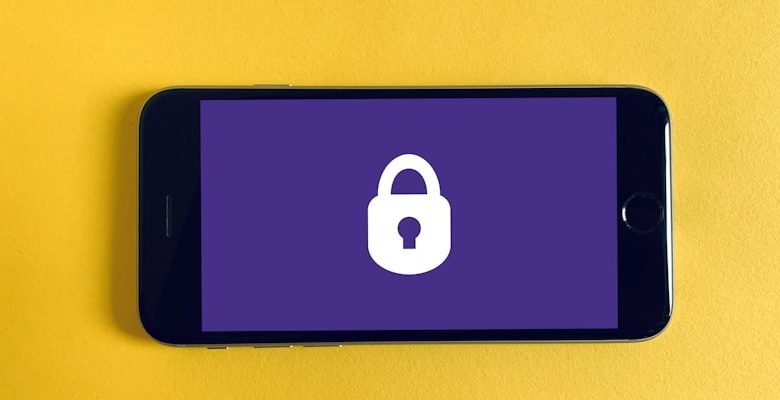Exploring Decentralized Identity Solutions for Enhanced Privacy

- Understanding the concept of decentralized identity
- Benefits of using decentralized identity solutions
- Comparing centralized vs decentralized identity systems
- Challenges and obstacles in implementing decentralized identity solutions
- Exploring the role of blockchain technology in enhancing privacy
- Real-world applications of decentralized identity solutions
Understanding the concept of decentralized identity
Decentralized identity is a revolutionary concept that is gaining traction in the digital world. It refers to a system where individuals have control over their own identities without the need for a central authority. This allows for enhanced privacy and security, as users can choose what information to share and with whom.
One of the key components of decentralized identity is the use of blockchain technology. Blockchain provides a secure and transparent way to store and manage identity information. By using cryptography and distributed ledger technology, users can prove their identity without revealing sensitive data.
Another important aspect of decentralized identity is the concept of self-sovereign identity. This means that individuals have full ownership and control over their identities, allowing them to manage their personal information in a secure and private manner. This puts users in the driver’s seat when it comes to their digital identities.
Decentralized identity solutions are designed to give individuals more autonomy and control over their online identities. By leveraging technologies such as blockchain and self-sovereign identity, users can enjoy enhanced privacy and security while interacting online. This shift towards decentralized identity marks a significant step towards a more user-centric approach to identity management.
Benefits of using decentralized identity solutions
Decentralized identity solutions offer a wide range of benefits that can greatly enhance privacy and security for individuals and organizations alike. One of the key advantages of using decentralized identity solutions is the increased control and ownership that users have over their own personal information. Unlike traditional identity systems, where data is stored in centralized databases that are vulnerable to hacks and breaches, decentralized identity solutions allow individuals to store their information securely on their own devices or in secure online repositories.
Another benefit of decentralized identity solutions is the improved privacy that they offer. By using decentralized identifiers and verifiable credentials, individuals can selectively disclose only the information that is necessary for a particular transaction or interaction, without revealing any more than is needed. This helps to prevent unnecessary data sharing and minimizes the risk of identity theft or fraud.
Decentralized identity solutions also offer greater flexibility and interoperability compared to traditional identity systems. With decentralized identifiers, individuals can use the same digital identity across multiple platforms and services, without having to create and manage separate accounts and passwords for each one. This not only makes it more convenient for users, but also reduces the likelihood of security vulnerabilities associated with having multiple accounts.
Comparing centralized vs decentralized identity systems
When comparing centralized and decentralized identity systems, it is important to consider the implications for privacy and security. Centralized identity systems rely on a single point of control, such as a government agency or a large corporation, to manage and verify individuals’ identities. This can lead to concerns about data breaches, surveillance, and the potential for misuse of personal information.
In contrast, decentralized identity systems distribute control over identity verification among multiple parties, such as individuals themselves, without the need for a central authority. This can enhance privacy by reducing the amount of personal data stored in a single location and limiting the potential for unauthorized access.
Centralized identity systems often require individuals to share a significant amount of personal information in order to verify their identity. This can result in a loss of control over how that information is used and shared. In contrast, decentralized identity systems can allow individuals to selectively disclose only the information necessary for a particular interaction, preserving their privacy.
Furthermore, centralized identity systems are vulnerable to single points of failure, such as a data breach or a security breach at the central authority. Decentralized identity systems, on the other hand, are more resilient to such attacks due to their distributed nature and use of encryption technologies.
Challenges and obstacles in implementing decentralized identity solutions
Implementing decentralized identity solutions comes with its own set of challenges and obstacles that organizations need to navigate. These challenges can hinder the adoption and widespread use of decentralized identity technologies. Some of the key challenges include:
- Lack of standardization: One of the main obstacles in implementing decentralized identity solutions is the lack of standardized protocols and frameworks. Without industry-wide standards, interoperability and compatibility issues may arise, making it difficult for different systems to communicate with each other.
- Scalability concerns: Another challenge is the scalability of decentralized identity solutions. As the number of users and transactions increases, the system must be able to handle the load without compromising performance or security.
- Security risks: Decentralized identity solutions are vulnerable to security risks such as hacking, data breaches, and identity theft. Ensuring the security and integrity of user data is crucial for the success of these solutions.
- Regulatory compliance: Compliance with regulatory requirements such as GDPR, HIPAA, and others can be a significant hurdle for organizations implementing decentralized identity solutions. Ensuring that the system meets all necessary legal and regulatory standards is essential.
- User adoption: Finally, user adoption is a key challenge in implementing decentralized identity solutions. Educating users about the benefits of decentralized identity and addressing any concerns they may have about privacy and security is essential for widespread adoption.
Exploring the role of blockchain technology in enhancing privacy
One of the key aspects of exploring decentralized identity solutions for enhanced privacy is the role that blockchain technology plays in this process. Blockchain technology offers a secure and transparent way to store and manage identity information, reducing the risk of data breaches and unauthorized access. By using blockchain, individuals can have more control over their personal information and decide who can access it.
Blockchain technology works by creating a decentralized and immutable ledger where identity information can be recorded and verified. This ensures that the data is secure and cannot be tampered with, providing a high level of privacy protection. Additionally, blockchain enables individuals to interact directly with service providers without the need for intermediaries, further enhancing privacy and security.
Moreover, blockchain technology can also enable the use of self-sovereign identities, where individuals have full control over their digital identities and can choose what information to share with whom. This empowers individuals to protect their privacy while still engaging in online activities and transactions. Overall, blockchain technology plays a crucial role in enhancing privacy and security in decentralized identity solutions.
Real-world applications of decentralized identity solutions
Decentralized identity solutions have a wide range of real-world applications across various industries. By leveraging blockchain technology, these solutions offer enhanced privacy, security, and control over personal data. Here are some key examples of how decentralized identity solutions are being utilized:
– **Healthcare**: In the healthcare sector, decentralized identity solutions can help securely store and manage patient health records. Patients can have more control over who accesses their sensitive information, reducing the risk of data breaches or unauthorized access.
– **Finance**: Decentralized identity solutions are also being used in the financial industry to streamline customer onboarding processes and improve identity verification procedures. By securely verifying identities without the need for third-party intermediaries, financial institutions can enhance security and reduce costs.
– **Government**: Governments around the world are exploring decentralized identity solutions to improve citizen services, enhance data security, and combat identity theft and fraud. By implementing decentralized identity systems, governments can provide more secure and efficient services to their citizens.
– **Supply Chain**: In the supply chain industry, decentralized identity solutions can help track products throughout the entire supply chain, ensuring authenticity and reducing the risk of counterfeit goods. By securely verifying the identities of all participants in the supply chain, transparency and trust can be enhanced.
Overall, decentralized identity solutions offer a promising way to address privacy concerns and improve data security in various industries. By leveraging blockchain technology, organizations can empower individuals with greater control over their identities and personal data, leading to a more secure and efficient digital ecosystem.



